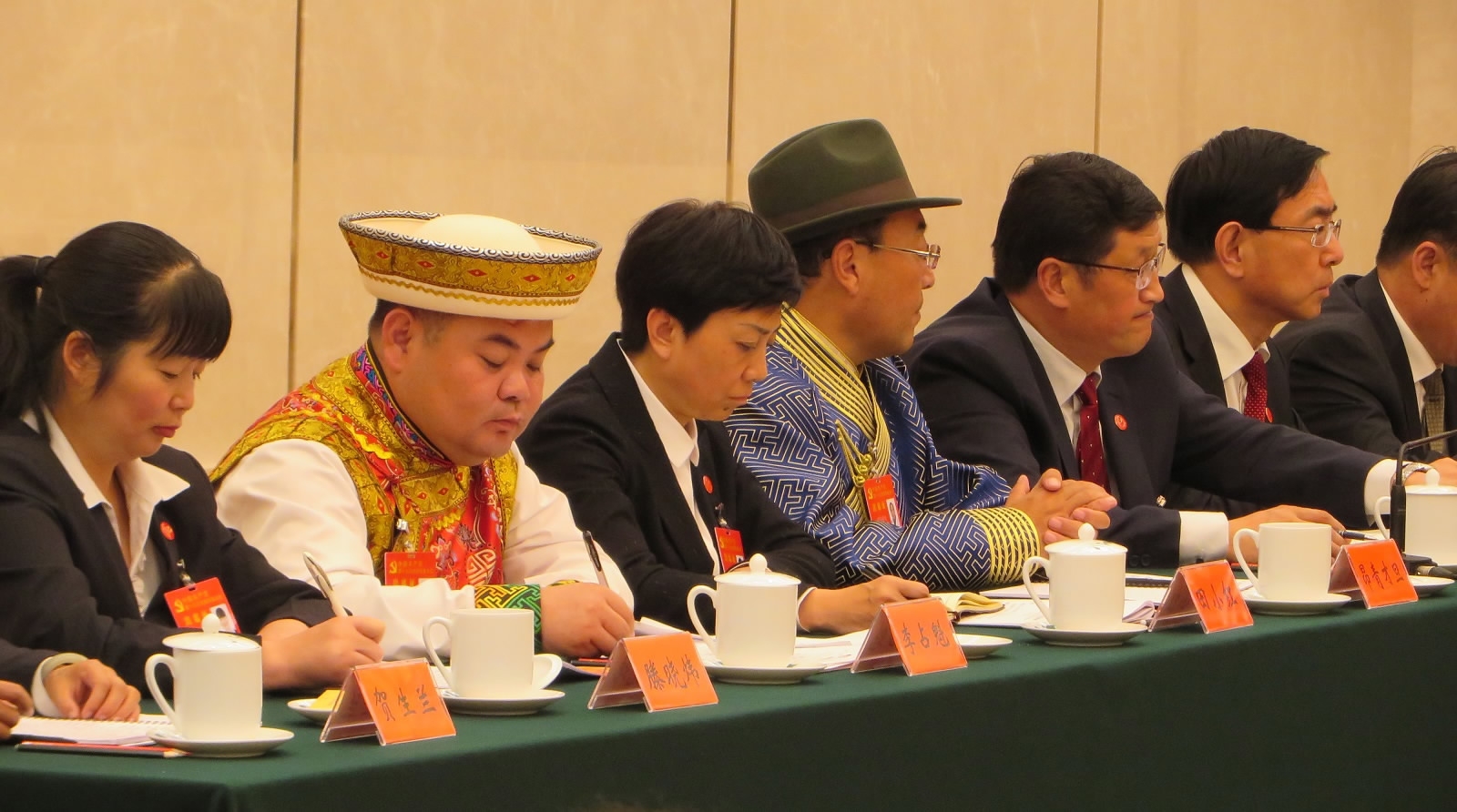 (Photo: CGTN)
(Photo: CGTN)
A total of 2,280 delegates are attending the 19th CPC National Congress at the Great Hall of the People in Beijing this week. But what do they actually do? CGTN attended some delegate discussions that were open to the press Thursday to find out more.
Who are they?
Delegates come from every province, municipality and autonomous region in China, but alongside the regional groups, there are also several focused on a specific sector or area of government.
On Thursday morning, the big attraction was the Financial Sector Delegation's discussion, chaired by the head of China's central bank, Zhou Xiaochuan, alongside the chairmen of China's banking, securities and insurance regulators.
There is also a delegation of state-owned enterprises and a delegation of central state departments.
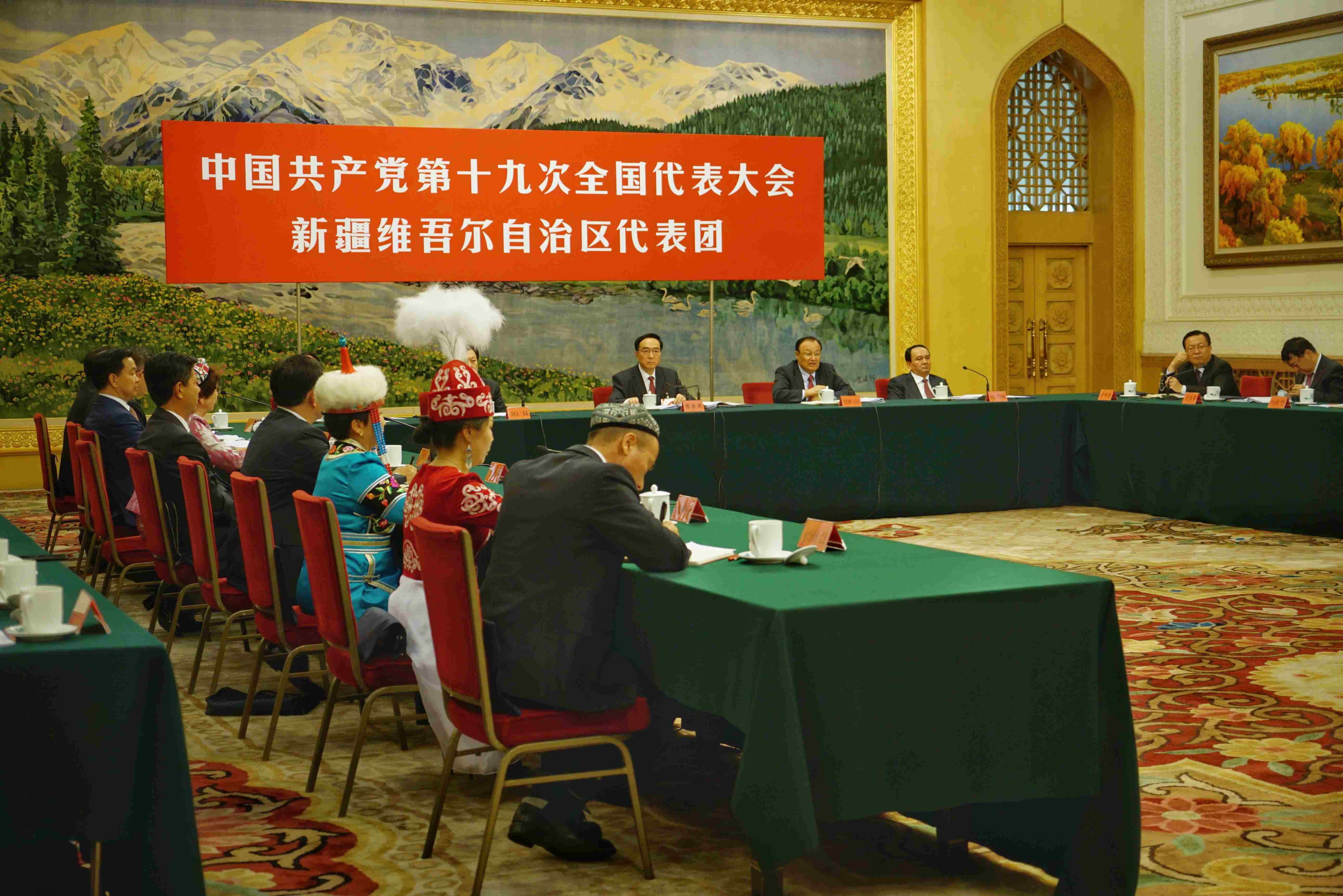
The Xinjiang Delegation meets in the Xinjiang Hall at the Great Hall of the People, October 19, 2017. (Photo: CGTN)
So delegates include everything from high-profile figures like the governor of the People's Bank of China, to grassroots-level representatives who can be electrical technicians, doctors or handicraft makers.
Delegations vary in size from about 30 to 80 people, and convene in one of the dozens of ornate rooms hidden around the labyrinthine Great Hall of the People, with sparkling chandeliers overhead and thick carpets underfoot. Regional delegations even get to meet in rooms named after them – Tibet Hall, Shaanxi Hall or Sichuan Hall.
What do they do?
At the start of the 19th CPC National Congress, many of the delegations held a session that was open to the press but discussions will continue throughout the week behind closed doors.
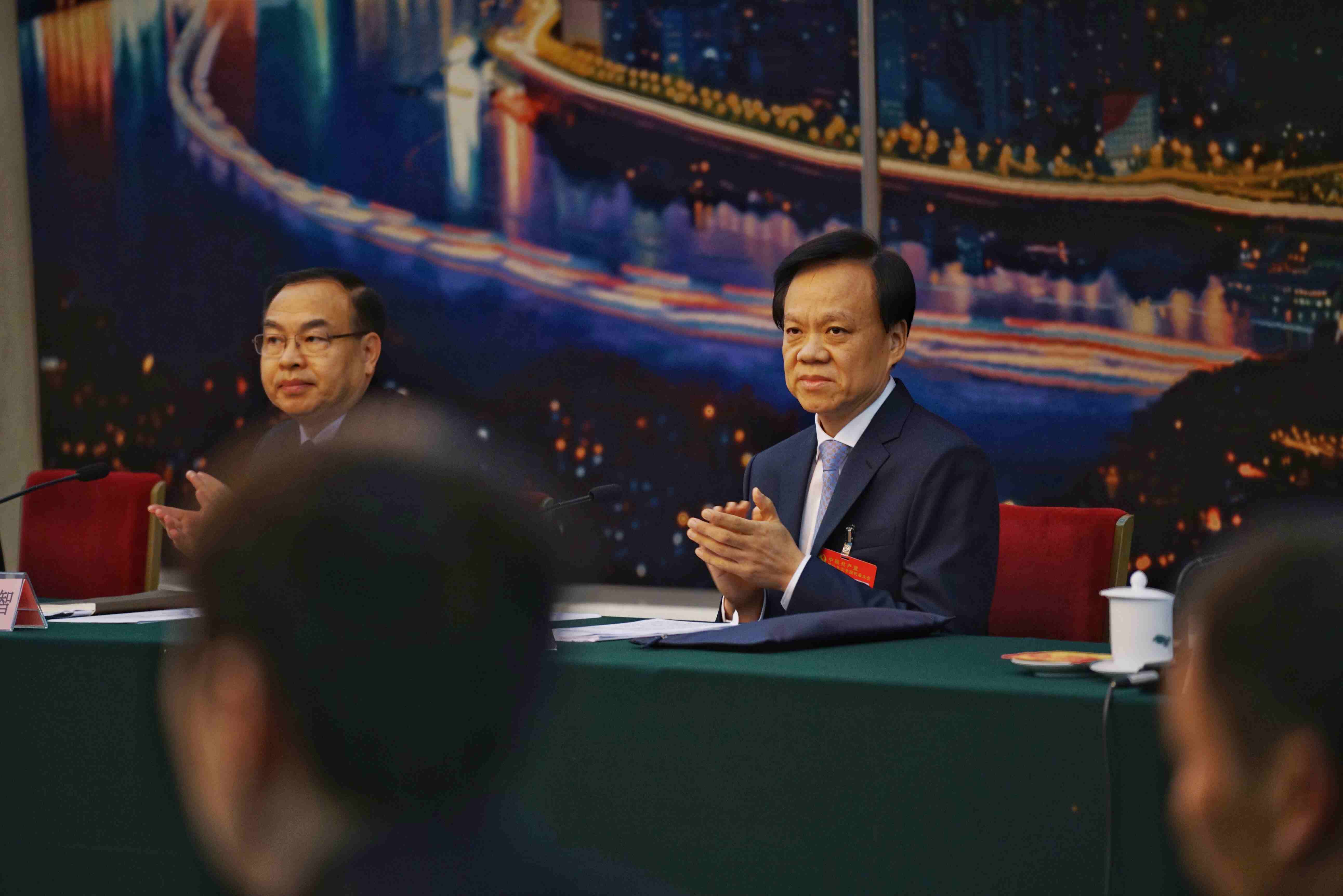
Secretary of the Chongqing Municipal Committee of the CPC, Chen Min'er, attends the Chongqing Delegation discussion at the Great Hall of the People, October 19, 2017. (Photo: CGTN)
Regional delegations are usually chaired by the local Party chief, such as the recently appointed Secretary of the Chongqing Municipal Committee of the CPC, Chen Min'er.
At the meetings, the delegations hear statements from various members.
They are also expected to discuss amendments to the CPC Constitution over the next week.
At the end of the National Congress the delegates will elect a new CPC Central Committee – the current one has just over 200 members – that will lead the Party over the next five years.
What do they talk about?
Issues of concern run the gamut from Party building to currency controls and pollution.
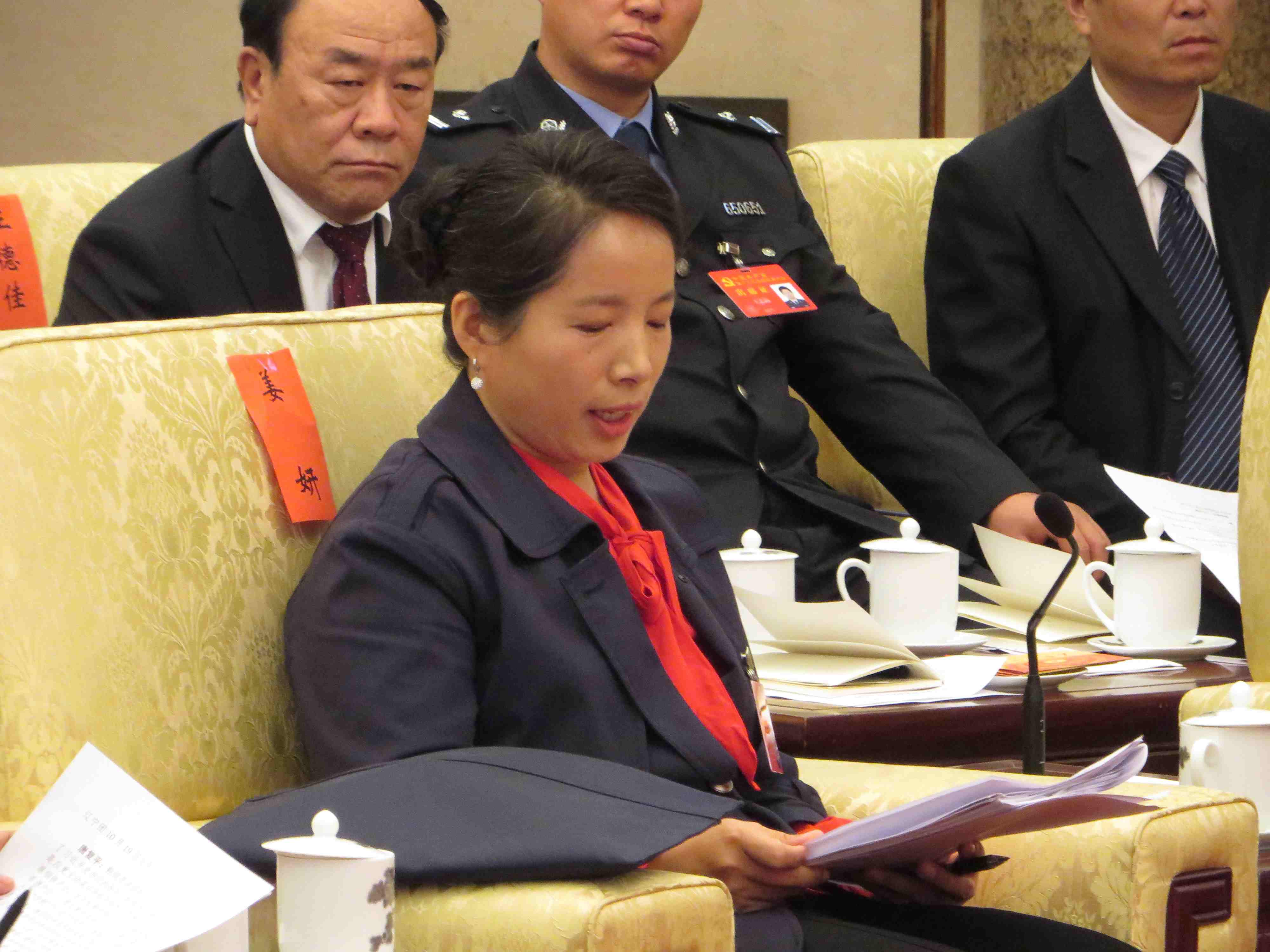
A delegate speaks during a delegation discussion at the Great Hall of the People, October 19, 2017. (Photo: CGTN)
The delegation from northwestern Qinghai Province talked on Thursday about attracting investment and achieving poverty alleviation by 2020, while at the meeting of northeastern Liaoning Province representatives, a female delegate talked about environmental protection as an opportunity for growth.
The delegation from the Xinjiang Uygur Autonomous Region, where ethnic minorities make up the majority of the population, put the emphasis on keeping the region safe and eliminating threats, as well as pushing policies that benefit people of all ethnicities.
A chat with a delegate
CGTN talked to a delegate from Heilongjiang Province, on China's border with Russia, who gave some insight into their work.
As a grassroots-level representative, she said she did not give a statement at her delegation's meeting on Thursday but was content to observe and listen to other delegates.
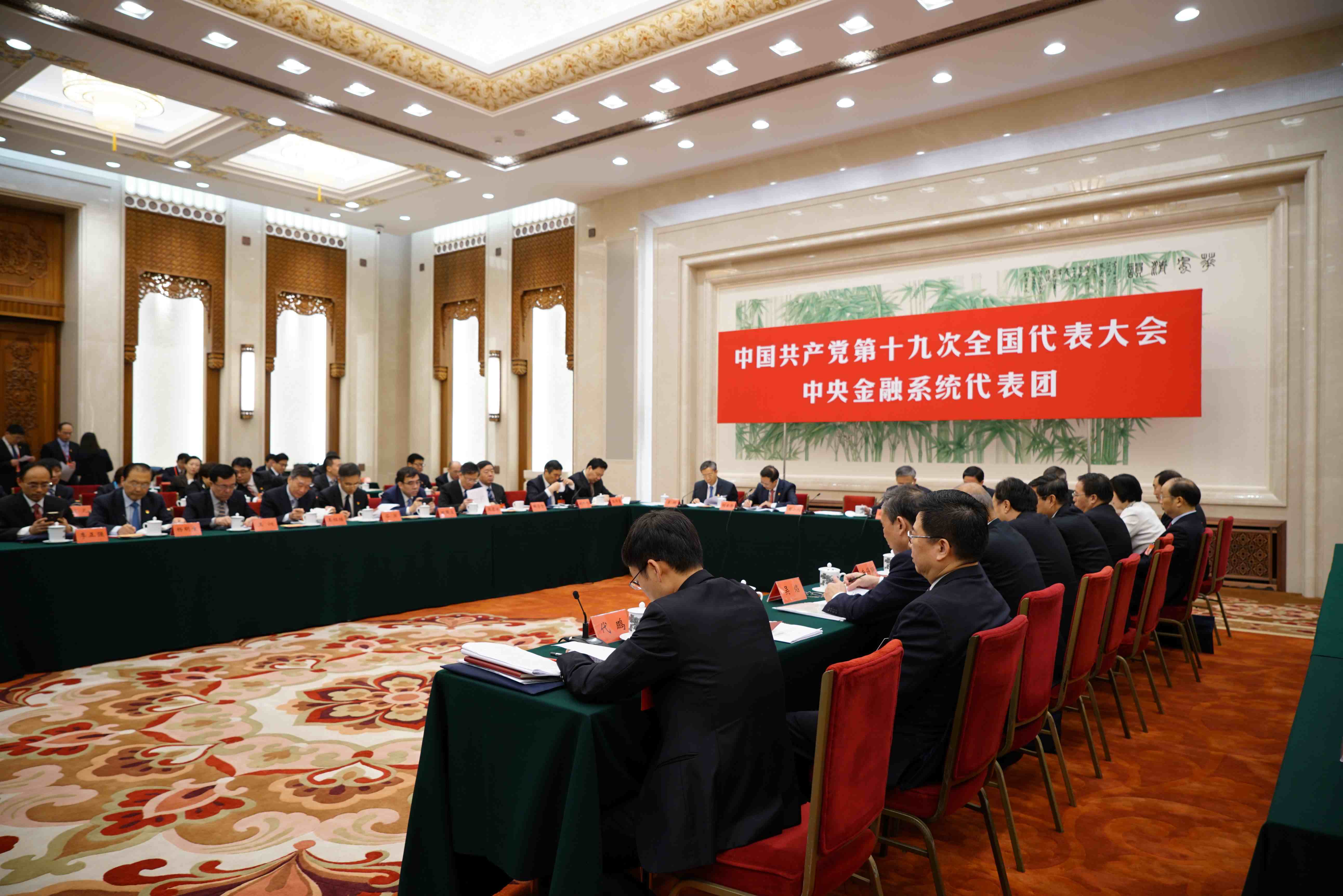
The Financial Sector Delegation at the Great Hall of the People on October 19, 2017. (Photo: CGTN)
In the five years since the last CPC National Congress, Heilongjiang – perhaps best known for its capital city Harbin and its ice sculpture festival – has seen "many, many" changes, Gou Xiaohong told CGTN.
But the province's delegates hope to do more to make Dongbei – China's northeastern region, including the provinces of Liaoning, Jilin and Heilongjiang – prosperous again.
"Harbin is the power engine that drives Dongbei's growth," she insisted.
With her focus being environmental protection, Gou said she was happy to hear Xi Jinping repeatedly bring up the issue during his report to the 19th CPC National Congress on Wednesday.
Xi also noted that "socialism with Chinese characteristics has entered a new era."
This concept "under the current circumstances, is the most suitable thing for China's development and pattern," Gou said, calling it a "new page" in China's history.


